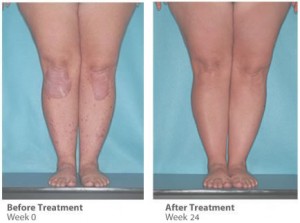Living & Coping with Psoriasis – Dr. Amy Forman Taub
August is Psoriasis awareness month, Psoriasis is a genetic and chronic disease that affects nearly 6 million Americans. Psoriasis is considered an autoimmune disease, meaning it is caused by one’s own immune system.
Skin becomes overactive – accelerating metabolism, normally skin renews itself every 60 days. Psoriatic skin renews itself at an accelerated pace every 9 days, making the renewal of new skin noticeable.
Psoriasis becomes worse when a person’s lifestyle includes drinking, smoking and excessive stress – Psoriasis is treatable under dermatological care.
The 5 types of Psoriasis:
1. Plaque – the most common, round oval patches of scaly red skin.
2. Guttate – small patches spread all over the body – usually the aftermath of an infection with strep throat.
3. Hand/Foot – nails thicken, develop pits and become yellowish or brown in color,
4. Erythrodermic – the entire body is covered in red scaly patches.
5. Pustular – postules, bumps filled with puss scattered on red scaly skin.
Erythrodermic and Pustular Psoriasis are the more serious, there is usually a fever or other illness that may require hospitalization –
Dr. Amy Forman Taub is a Chicago-area dermatologist and a well-known authority in the field of skincare, Dr. Taub is the Medical Director of Advanced Dermatology, founder of Skinfo.com, and Assistant Clinical Professor at Northwestern University Medical School and the Department of Dermatology. She has treated hundreds of cases of psoriasis, all with patience and persistence, and has found several treatment options which offer relief and a better quality of life for psoriasis sufferers.
 Dr. Taub graciously agreed to answer a few questions and in the process is sharing her tips on living and coping with Psoriasis.
Dr. Taub graciously agreed to answer a few questions and in the process is sharing her tips on living and coping with Psoriasis.
Anita: I heard there were new treatments for psoriasis, that they were awaiting FDA Approval?
Dr. Taub: Yes, New biologic agents are being investigated at a very rapid pace. New receptor molecules have been identified as targets (called IL-23 receptors) that may be even more specific than the agents we have today. The older biologics have undergone many years of study and the dermatologic community is finally feeling more confident about the long-term safety of these agents as a result of this data. In fact, there may even be some negative consequences of NOT treating psoriasis. More data is pointing to the fact that having unchecked psoriasis could lead to an increased risk of cardiovascular disease, leading many dermatologists to push more toward treatment as being more conservative.
Tips on living and coping with psoriasis:
Treatment options for Psoriasis – which have worked for Advanced Dermatology patients:
- XTRAC Laser: The XTRAC excimer laser provides targeted phototherapy treatment for psoriasis offering safe, effective and lasting results. This laser uses a focused beam of ultraviolet light on the affected skin area avoiding exposure to healthy skin.
- Topical Agents: In mild psoriasis, where less than 10 percent of the body surface is affected, topical creams, ointments, gels and lotions are often applied first. These usually consist of steroids, vitamin D derivatives, retinoids (vitamin A derivatives), and tar based topical treatments. The most common is a steroid because of its anti-inflammatory properties and because it also decreases the redness and scaling relatively quickly. Visit skinfo.com to learn which creams and lotions work.
- Oral or Injectables: When psoriasis is more severe or light treatments or topicals have failed, oral or injectable solutions may be considered. They work by decreasing the metabolism in overactive cells thereby decreasing the rapidity with which psoriatic skin is made — helping to normalize it. In addition, sufferers now have biologic medications available – also known as “designer” drugs which attack specific molecular targets in the immune system. Amevive, Raptiva, Remicade, Enbrel and Humira treat moderate to severe psoriasis.
Anita: Can a combination of all three recommended treatments keep Psoriasis at bay?
Dr. Taub: Absolutely. Many people with psoriasis need multiple concurrent treatments in order to stay clear.
Psoriasis does not discriminate, it effects everyone. Recently Kim Kardashian was diagnosed with psoriasis, and honestly, she’s gorgeous regardless. Don’t allow psoriasis to stop you from living your life. Do your research and seek medical guidance.
For Dermatological care in San Francisco:
Dr. Micheal Burns
450 Sutter St(at Stockton St)
San Francisco, CA 94108
Neighborhood: Union Square
(415) 362-4565
Photos Courtesy of Google Images

















 Mylifeinbeauty.com is a San Francisco based beauty blog. My Life in Beauty.com provides readers with up-to-the-minute beauty events and trends in the world of Beauty – stay tuned!
Xoxo
Mylifeinbeauty.com is a San Francisco based beauty blog. My Life in Beauty.com provides readers with up-to-the-minute beauty events and trends in the world of Beauty – stay tuned!
Xoxo